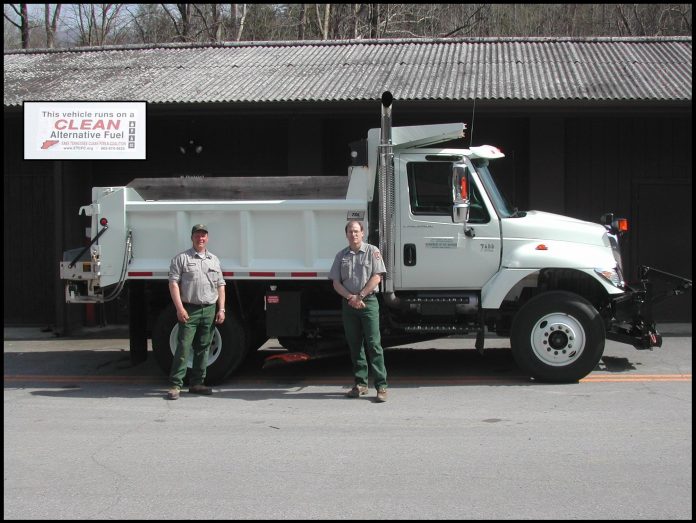GATLINBURG, Tenn. — The last thing a hiker wants to encounter is a haze of smog that diminishes the view from atop a picturesque vista.
With more than 11 million visitors annually, Great Smoky Mountains National Park strives to maintain its natural beauty by adopting practices that reduce the park’s environmental footprint.
Reductions
In 2016, the park used 43,085 gallons of biodiesel (B20) resulting in the following estimated emissions reductions: 15 percent reduction in carbon dioxide; 12 percent reduction in carbon monoxide; 20 percent reduction in both hydrocarbon and sulfur dioxide and 12 percent reduction in particulate matter.
The park began using biodiesel blends to power park-owned diesel vehicles and equipment in 2003. The cleaner-burning fuel has been used park-wide since 2006.
Today, numerous locations in the park use B20 to power 40 pieces of heavy equipment such as dump trucks, graders, front-end loaders, a bucket truck and more.
Additionally, Bioheat® is used to heat the park’s headquarters building.
“Because the southern Appalachians are downwind of many urban areas, industrial sites, and power plants in the eastern U.S., the Smokies’ air resources have been significantly degraded by nitrogen and sulfur air pollutants, impacting human health, visitor enjoyment, and ecosystems,” according to Jim Renfro, the park’s air quality specialist.
Trolley
The trolley systems in the neighboring towns of Pigeon Forge and Gatlinburg also use B20.











